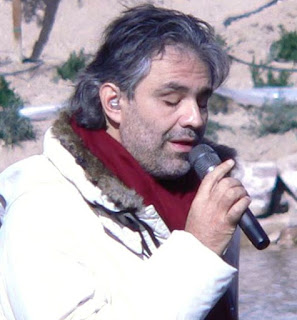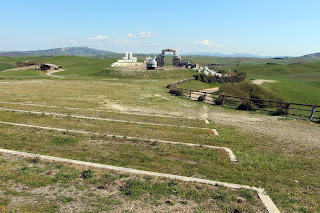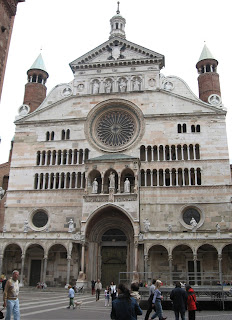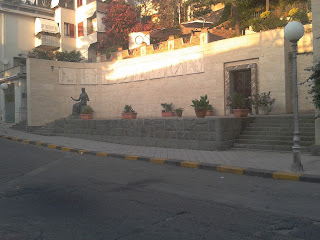Sweet success for writer and performer
 |
| Zucchero is known for the passion and emotion of his stage performances |
In a career lasting more than 30 years, he has sold more than 50 million records and has become popular all over the world.
He is hailed as ‘the father of the Italian blues’, having introduced blues music to Italy, and he has won many awards for his music. He has also been given the Order of Merit of the Italian Republic.
As a young boy, Zucchero lived in the Tuscan seaside resort of Forte dei Marmi, where he sang in the choir and learned to play the organ at his local church.
He became fond of soul music and began to write his own songs and play the tenor saxophone. He started playing in bands while studying veterinary medicine but gave up his studies to follow his dream of becoming a singer.
He took the stage name of Zucchero, the Italian word for sugar, which was a nickname one of his teachers had given him.
 |
| Zucchero with U2 lead singer Bono at a U2 concert in Turin in 2015 |
His 1987 album Blues became the highest selling album in Italian history and made Zucchero a household name. His next album Oro, Incenso e Birra, which included guest spots by Ennio Morricone, Eric Clapton and Rufus Thomas, then outsold it.
Zucchero has sung in duets with Paul Young, Sting, and Luciano Pavarotti and his collaboration on the song Miserere with the young Andrea Bocelli won popularity for the up-and-coming tenor.
He sang regularly in the concerts organised by Pavarotti to raise money for children in war zones and more recently he has sung at the Concert for Emilia, to raise money for earthquake victims, and in the Voices for Refugees concert in Vienna in 2015.
Watch Zucchero on stage at the Arena in Verona
His new single, Streets of Surrender, which is dedicated to the victims of the recent Paris attacks, will be among the songs he will perform in his concerts at the Arena in Verona taking place between now and 28 September.
Travel tip:
Roncocesi, where Zucchero was born, is a hamlet – frazione -- of Reggio Emilia, situated about seven kilometres outside the city. Reggio Emilia is an ancient walled city in Emilia-Romagna that has many beautiful buildings within the hexagonal shape of its historic centre. Roman remains mingle with medieval palaces and Renaissance and Baroque masterpieces.
 |
| Stage construction under way at the Arena di Verona |
The Arena di Verona, where Zucchero is appearing in concert between 16 and 28 September, is a wonderful surviving example of a first-century Roman amphitheatre, which has now become a famous location for large-scale, outdoor productions of opera each summer.
See Zucchero's back catalogue of music at Amazon.com
(Main photo of Zucchero by Danielle dk CC BY-SA 3.0)
(Bono & Zucchero photo by angelo freddo)
Home








